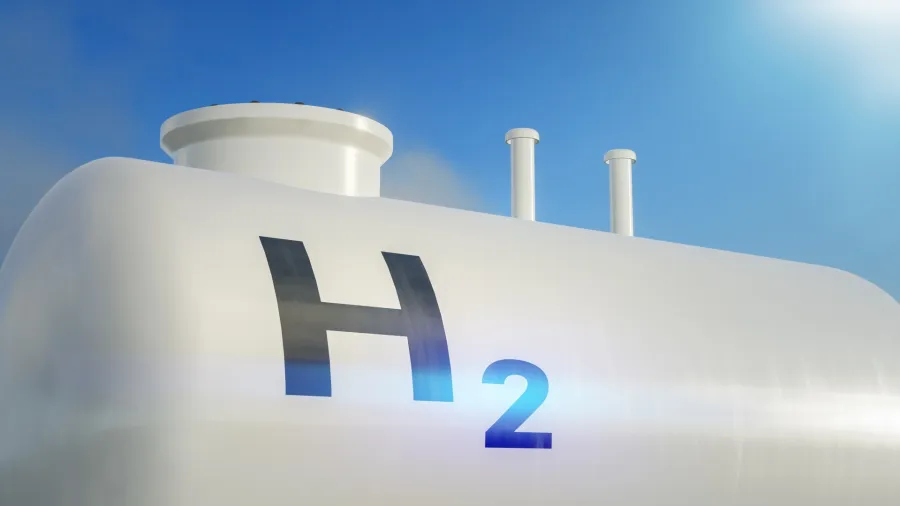
Safety concerns cloud Hong Kong’s ‘green’ transport ambitions
Hydrogen fuel is volatile, highly flammable and expensive, an energy expert says.
Hong Kong may need to rethink the use of hydrogen fuel in its transport sector given its inability to produce it on a large scale, and safety risks tied with the alternative fuel, an energy analyst said.
"Hydrogen is not like any other fuel that's currently being used in Hong Kong,” Grant Hauber, strategic energy finance advisor for Asia at the Institute for Energy Economics and Financial Analysis (IEEFA), told Hong Kong Business.
“It is highly volatile, it is invisible, it is odourless and it is highly flammable. It's not something that can be readily substituted for other fuels that are out there, simply because of these safety aspects,” he said.
He noted that hydrogen must be delivered to all distribution points in Hong Kong, which is a big problem since hydrogen does not like to be transported. “It's a highly energy-intensive process to get it [to the distribution points], therefore it’s costly and there's a high propensity for leakage and loss along the way.”
Hong Kong’s Environment and Ecology Bureau said there are 14 trials approved for hydrogen use, including five hydrogen fuel cell (HFC) double-decker buses operated by Citybus and three HFC street-washing vehicles for the Food and Environmental Hygiene Department, it said in an email.
There is also a hydrogen-powered light rail vehicle in Tuen Mun running as a non-revenue train for the Mass Transit Railway Corp. (MTRC), and two HFC refuse collection vehicles for Waihong Environmental Services Ltd.
Hong Kong, however, has a robust history of managing risks associated with hazardous materials like liquefied petroleum gas and dangerous goods, said Thomas Lo, market area manager for HK and Macau at Energy Systems, DNV, in a separate interview.
He said recent risk studies for hydrogen fuel cell buses conducted by the DNV and the Electrical and Mechanical Services Department position Hong Kong as “a leader in risk management for HFC buses.”
Still, Hauber said hydrogen’s tendency for higher energy losses and lower efficiency makes its use for transportation a lower-value application. “The ideal situation is that you use the hydrogen where you make it, so you don't have to transport it.”
For bringing large quantities of hydrogen into Hong Kong, he said hydrogen could be transported either by piping and liquefying it, or by binding it to ammonia, then transporting and breaking down the ammonia, which leads to a 75% loss of the energy used to make it.
Its application in buses and trains is a “fantasy use” because it is uncompetitive, compared to, say, electrifying those vehicles, he added.
Apart from safety issues, it would also be hard for Hong Kong to produce enough hydrogen, Hauber said.
Hong Kong has Towngas, which supplies gas with a 50% hydrogen content, which Lo said could be leveraged for hydrogen distribution and use.
Towngas' infrastructure, however, must be “assessed for safety and feasibility when conveying hydrogen blends and 100% hydrogen,” he added.
Hauber added that hydrogen produced by Towngas is carbon-intensive. “To replace current carbon-intensive uses with hydrogen would require a large-scale import of hydrogen.”
Lo, in his interview, also said Hong Kong must import much of its hydrogen. “It is not naturally endowed with ample resources suitable for renewable generation required to produce renewable electricity and, in turn, green hydrogen and derivative products.”
Production scale
Hauber noted that even with imports from Mainland China, the world’s biggest green hydrogen producer, large-scale hydrogen use in Hong Kong is still “a very long way off.”
Sinopec’s Kuqa petrochemical refinery in Xinjiang is currently the largest green hydrogen producer, but the plant only yields 20,000 tonnes of hydrogen yearly and needs 300 megawatts of renewable energy inputs either from wind or solar. All of that output is for the refinery’s own use.
“While China is rapidly expanding its green hydrogen production capabilities – which could reach 220,000 tonnes of annual output in the next year – all that supply is already spoken for domestically. China alone consumes 33 million tonnes of hydrogen to support existing chemical manufacturing processes,” Hauber added.
Achieving a production scale of a million tonnes would need gigawatts of renewable energy from farms that will occupy thousands of hectares of land. “You need to be in a place that has the land for renewable energy, then a place for the plant. In China, most of the wind and solar is in inner Mongolia,” Hauber said.
He added that most markets build solar and wind farms for the grid and not to make hydrogen. This is also the case for Hong Kong, as “renewable electricity generated locally will probably be prioritised for decarbonising current electricity needs, rather than for hydrogen production,” said Lo.
Hauber said Hong Kong could opt for alternatives that maximise energy efficiency, such as electric vehicles. “Battery-powered vehicles have turned out to be far more energy efficient than hydrogen, and therefore have lower cost.”
EVs are 60% to 80% energy efficient, compared with about 33% for hydrogen fuel cell vehicles and dropping to 17% for hydrogen-powered internal combustion engine vehicles, he pointed out.
“Electric vehicles can recharge their batteries when braking. That's where you get closer to that 80% range of efficiency. On a cost-per-kilometre basis, EV wins in an urban environment,” Hauber said.
Hauber said hydrogen’s viability would all come down to end-use. “[Think about] the practicality and efficiency of the end use, and how you get that energy to that end use. Science matters. Engineering matters.”

















 Advertise
Advertise






